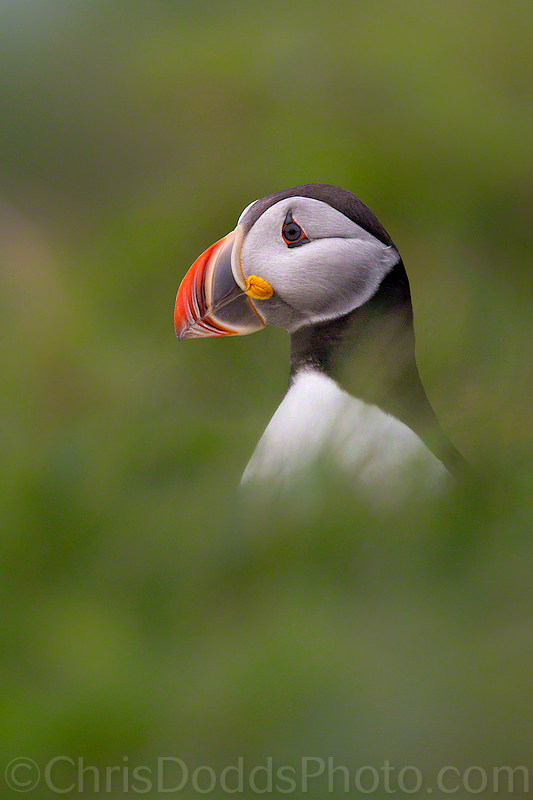Atlantic Puffin POP-UP PUFFIN (Fratercula arctica, Macareux moine, ATPU) Mingan Archipelago National Park Reserve of Canada, Réserve de parc national du Canada de l'Archipel-de-Mingan, Quebec, Canada. Image Copyright ©Christopher Dodds. Canon EOS Canon EOS 1DX, 600mm F4 L IS II, 2X Extender III, Tripod & Jobu Jr. 3 ISO 2,000s, f/9 @ 1/1,600s Manual mode. PURCHASE A PRINT or LICENSE IMAGE FOR PUBLICATION HERE.
Here's an Atlantic Puffin from my recent Puffin Photo Tour. I love the out of focus foreground and background grass which isolate, and frame, the Puffin so well in this image. Using the super sharp 600 f/4 IS L USM II with the 2X III Extender compress those elements and helps render them so perfectly out of focus and smooth; the painterly quality I was after. The effect is known as tele-compression. At a given aperture, a telephoto lens has a smaller depth of field than a wider lens. Had I used a wider lens and got closer, then the depth of field would have been much larger, there would have been much more details in the grass and the result would have been much less appealing and much more like an average "snapshot".
TESTIMONIAL
Chris’ skills go far beyond photography. It’s one of the reasons I enjoy working with him! Sure, he is able to provide advice on lensing, and framing and exposure, but his lectures go far beyond this. His knowledge of wildlife is encyclopedic! He teaches you how to observe and reposition in anticipation of that next great shot. And when it comes to tweaking your photos, his mastery of colour, light and texture truly becomes evident. If you can, take one of his lectures or wilderness photography workshops. It will help up your game!
Graham Peddie Product Strategist, Canon Canada Inc.
